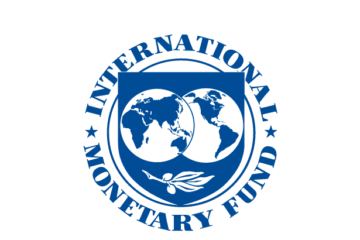As a personal finance writer for TheStreet, one of my goals is to connect with you, the reader, by discussing money matters in engaging and informative ways.
One approach I have found particularly successful is reporting on compelling personalities who speak and write about finances with smart and intriguing perspectives and advice.
One such person is Dave Ramsey, the author, radio host and podcaster, who frequently delves into subjects I cover such as saving for retirement, Medicare, Social Security, 401(k)s and IRAs (Individual Retirement Accounts).
💵💰Don’t miss the move: Subscribe to TheStreet’s free daily newsletter 💰💵
In his book Dave Ramsey’s Complete Guide to Money, Ramsey has a lot to say about 401(k)s and IRAs, which are the subjects I’ll be writing about in this space today.
He also writes interestingly about how he views his role as a personal finance teacher.
“Even though I teach on this topic a lot, it’s one of those things I almost dread talking about,” Ramsey explained. “I’ve seen a lot of people teach about retirement planning in such a dry and boring way that you’d almost rather stay broke your whole life than listen to them go on for another hour!”
Related: Shark Tank’s Kevin O’Leary sends strong message on 401(k)s, recession
Ramsey describes himself as someone who breaks away from the stereotype of overly technical and tedious financial experts. He finds joy in handling money — whether it’s exploring its possibilities, having fun with it, or sharing it generously.
“I like helping people get out of debt so they can do those things, too,” Ramsey wrote. “That means I’m the guy that has to get in there, blow the dust off the retirement-planning discussion, and show you what this stuff means in real life.”
He then explains a few of his important thoughts on saving for retirement, 401(k)s and Roth IRAs.
Dave Ramsey speaks with TheStreet about personal finance issues. The bestselling author explains some of his strong views on retirement savings, 401(k)s and IRAs.
TheStreet
Dave Ramsey warns Americans about a ‘sad truth’ regarding 401(k) plans
The Employee Benefit Research Institute found that 32% of American workers report the total value of their savings and investments (excluding the value of their primary home) to be less than $25,000, according to its 2025 Retirement Confidence Survey.
“The sad truth is, most Americans haven’t figured it out yet,” Ramsey wrote.
In a previous year’s version of the survey, 44% said they “guess” when asked how they made their long-term financial planning decisions.
“They guess! They put a blindfold on and played ‘Pin the Tail on the 401(k)!'” Ramsey wrote. “That’s a bad plan. This stuff is too important to ignore or leave to chance.”
More on retirement:
Shark Tank’s Kevin O’Leary sends strong message on 401(k)s, recessionDave Ramsey cautions U.S. workers about Social SecurityJean Chatzky warns Americans on Social Security, retirement money
In a traditional 401(k) plan, people have the advantage of investing money before taxes are deducted. The contributions made are untaxed at the outset, Ramsey explained. Taxes are applied as funds are withdrawn in retirement.
While this setup provides a significant benefit up front by allowing larger investment amounts, the tax implications on the accumulated growth can be substantial upon withdrawal.
For example, if someone has $4 million in their 401(k) at retirement, they might expect the government to claim roughly 25 percent — around $1 million — in taxes.
Related: Jean Chatzky warns Americans on Social Security, retirement money
Dave Ramsey recommends Roth IRAs
Ramsey highlights the advantages of a Roth IRA. Unlike a traditional 401(k) or IRA, contributions to a Roth IRA are made using money that has already been taxed. You earn your paycheck, your wages are taxed as usual, and then you allocate part of your post-tax income into the Roth IRA.
The beauty of this setup, Ramsey explains, is that as the investment grows over time, it does so completely free of taxes. If you accumulate $4 million in a Roth IRA by the time you retire, you retain the entire $4 million without any deductions for taxes.
“I love the Roth IRA for several reasons,” Ramsey wrote. “First of all, it gives you more flexibility. After the account has been open for five years, you can take out withdrawals up to your contributions with no penalties.”
“You can also take up to $10,000 out for a first-time home purchase, but I strongly advise against that option,” he continued. “Once you hit age fifty-nine and a half, you can make tax-free, penalty-free withdrawals of up to 100 percent.”
“The Roth IRA is my favorite way to invest.”
Related: Veteran fund manager unveils eye-popping S&P 500 forecast


